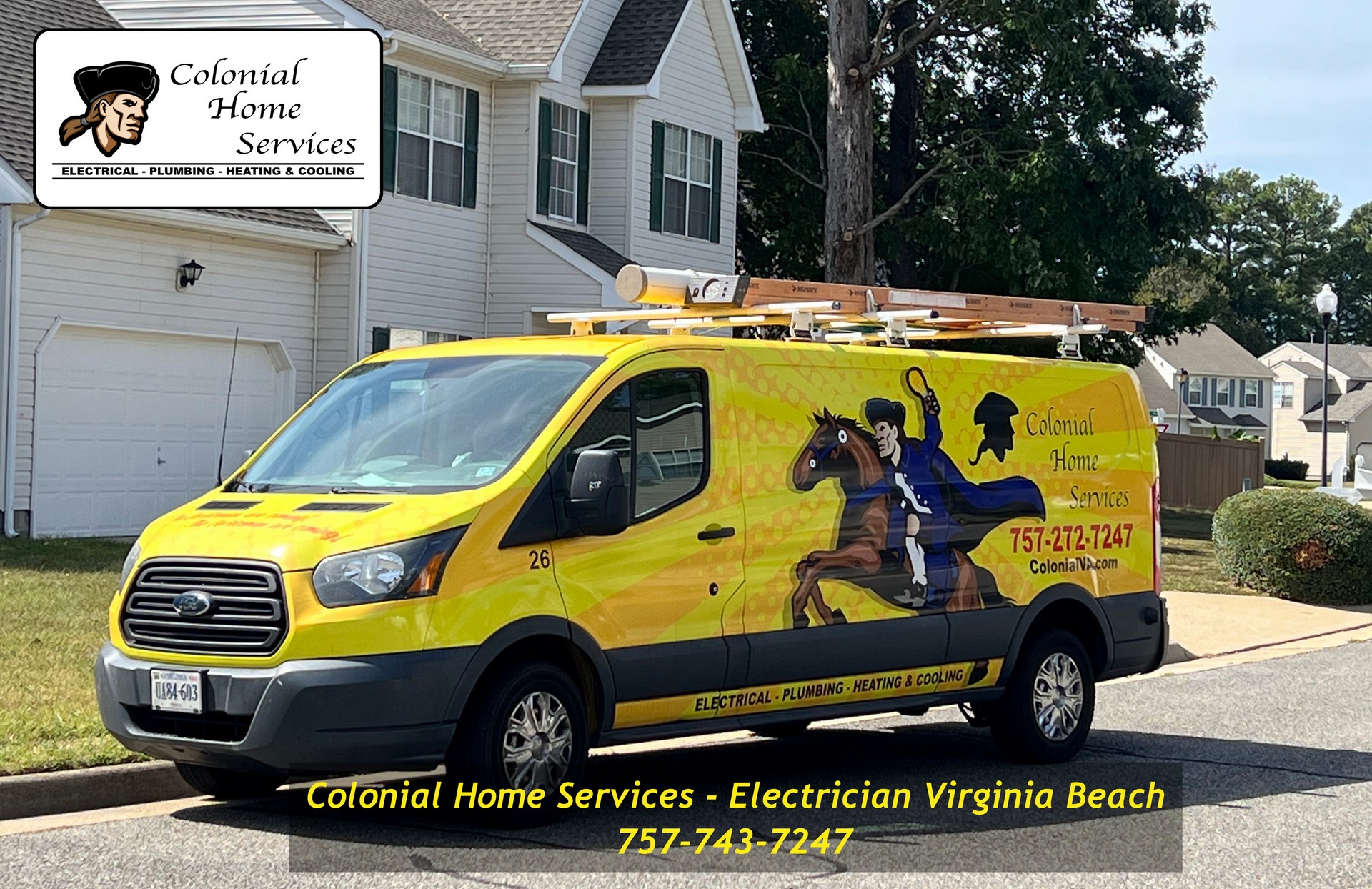Electrician Virginia Beach - Colonial Home Services - Electrician VB - 757-743-7247

Essential Tips Before Hiring the Right Commercial Electrician in Virginia Beach
If you're looking for a socket to be replaced in your home, then a residential electrician is the person to call. But if you need more complex work done, such as installing new stadium lights or getting a quote for tennis court lighting, then it's best to contact a commercial electrician.
To be precise – a commercial electrician is an expert in larger-scale electrical work, such as in an office block, warehouse, or even a sports stadium. While the basics of the job may be similar to a residential electrician, the size and complexity of the tasks are much bigger.
Looking for a Virginia Beach electrician for an electrical inspection in your industrial space? From rewiring and upgrading an office block to installing new wiring in a block of apartments, here's a guide to the range and scope of electrical work a commercial electrician can do. From electrical design, installation and maintenance to troubleshooting, safety inspections and more, a commercial electrician can help you get the job done right.
What Tasks Does A Commercial Electrician Do?
No matter the project, a commercial electrician can help! Inviting tenders for installing dock lighting or want accent lighting for a hall? A commercial electrician is the person for the job! They are more equipped to handle larger-scale electrical tasks than a residential electrician and with their experience and resources, they can help make your project a success. So, what kind of tasks do commercial electricians usually do?
A commercial electrician deal with installing new wiring, replacing existing wiring, and installing electrical components, switches, sockets, and lights. Their experience and resources enable them to undertake larger installations, such as stadium lights. Additionally, a commercial electrician is responsible for ensuring the safety and efficiency of electrical systems.
Their job involves regularly reading and interpreting technical drawings as well as being capable of planning and preparing for new electrical system installations, such as dock lighting. Additionally, they are tasked with fault diagnosis to identify any wiring or component faults before carrying out the necessary fixes. All of this is done in a friendly and professional manner.
It's important to be knowledgeable of local and national guidelines when it comes to wiring and electrical systems. Say, if someone asked you to install tennis court lighting for a new club, you'd be expected to handle the job with ease no matter where in the country it's located.
Compared to residential work, commercial electrical work requires a whole different setup. You'll not only handle the task solo, but you may have to lead a team of qualified electricians and apprentices to tackle the job. For example, if a large retail store needs to get accent lighting done quickly, you'll need to be sure to adhere to the set working time constraints and get it done outside of trading hours.
As a friendly commercial electrical company, we are familiar and comfortable with this scenario and have made sure to have the necessary resources available to meet the specific needs of a commercial job.
What Qualifications Do You Need to Become a Commercial Electrician?
As a commercial contractor, you know that working in a commercial setting can be a more challenging environment. However, it's important to remember that safety is always paramount when handling electricity - both in domestic and commercial settings. Working with electricity can be a risky business, but with the right safety precautions and a friendly attitude, you can navigate these challenges and be successful in your role.
Electricians often find themselves crouching and working in tight, confined spaces. This can pose a risk of being subjected to an electrical shock or sustaining an injury.For commercial electrical contractors, these risks can be even more extreme. From installing dock lighting to tennis court lighting, electricians have to adhere to strict site safety protocols and wear all the necessary safety gear. All while being aware of the relevant safety regulations.
Working as an electrician can be a challenging and dangerous job, but with the right safety measures and protocols, it can be a friendly and rewarding experience.